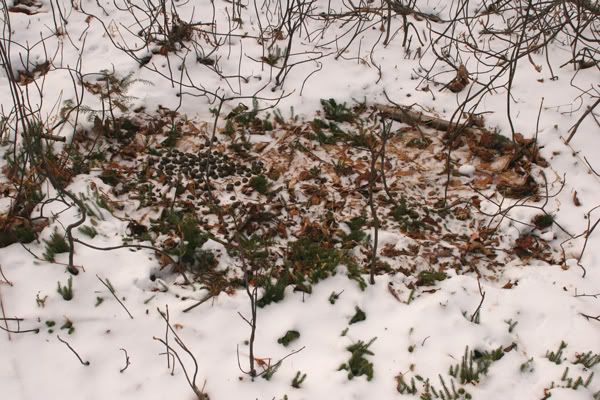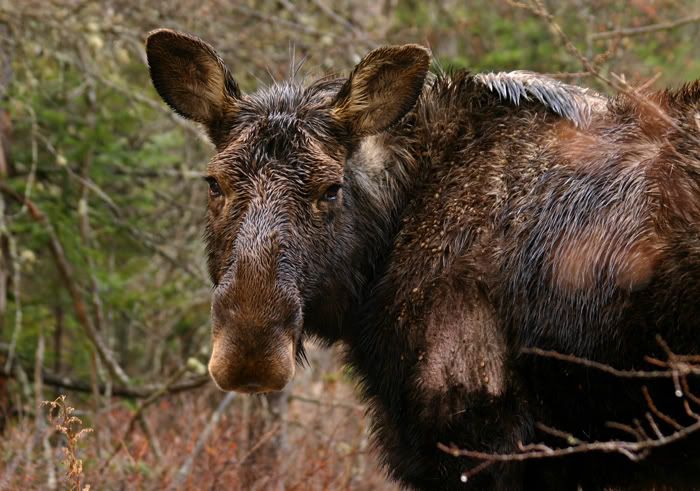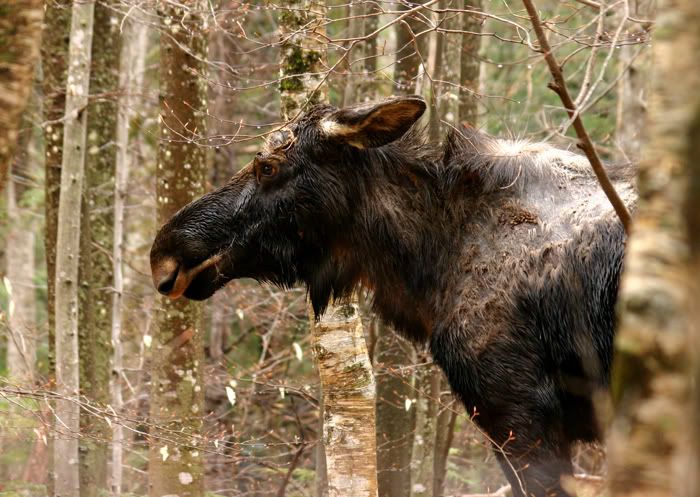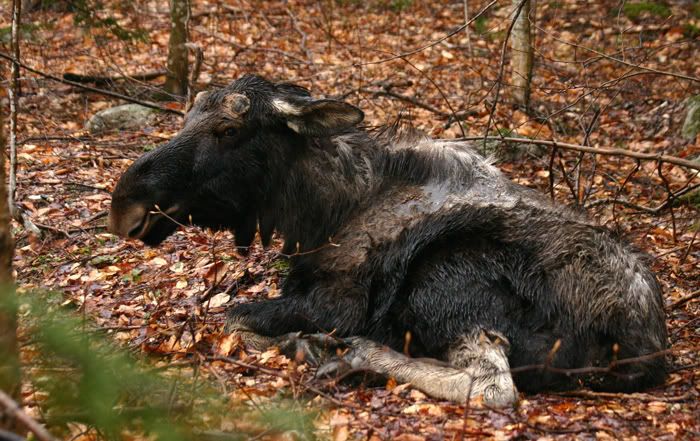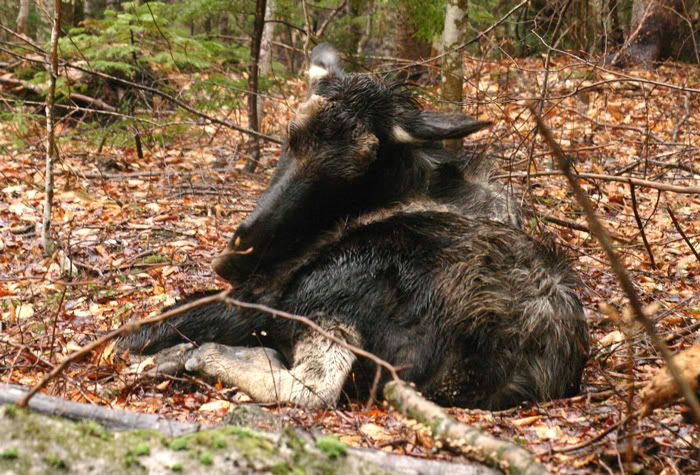1HappyHiker
Well-known member
In the Trip Reports forum, I posted a bushwhack to a little mountain called Bald Mountain near Stark, NH. Lots of moose sign were encountered on this whack. And at the beginning of the whack, a cow moose was spotted through the trees. The photo below was taken on this bushwhack, and I thought it was deserving of a separate posting in the Q&A Forum.
Perhaps it’s not that unusual, but I personally had not seen this before. The photo shows what appear to be moose droppings surrounded by some type of animal hair. So, my questions are as follows. I assume moose shed? If so, did this moose just happen to sh*t where it shed? Or perhaps, did the moose just happen to leave droppings in a spot where some other critter left some hair behind?
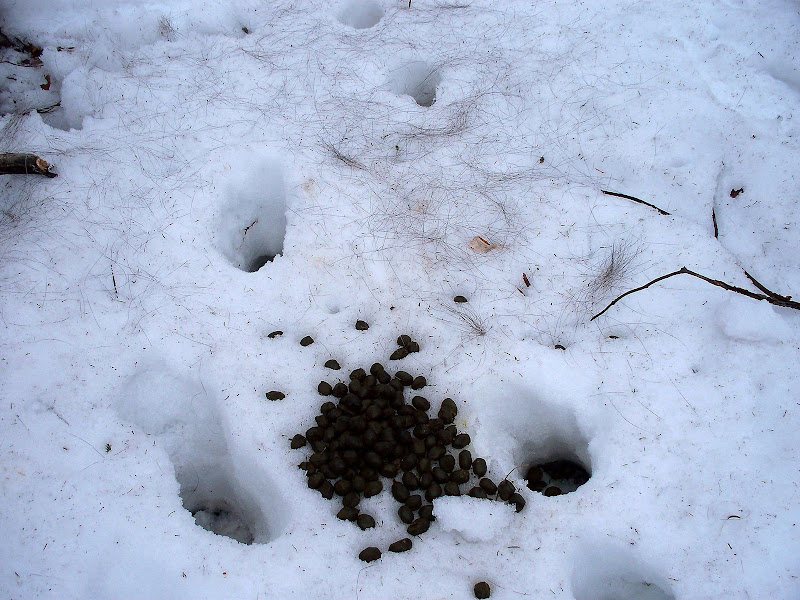
Perhaps it’s not that unusual, but I personally had not seen this before. The photo shows what appear to be moose droppings surrounded by some type of animal hair. So, my questions are as follows. I assume moose shed? If so, did this moose just happen to sh*t where it shed? Or perhaps, did the moose just happen to leave droppings in a spot where some other critter left some hair behind?

Last edited:

